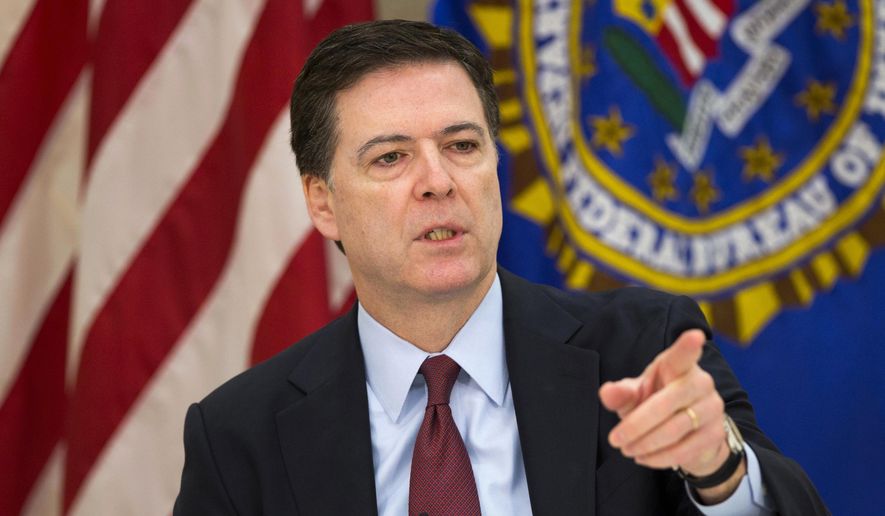FBI Director James B. Comey will be arguing for a robust debate on message-encryption technology to lawmakers Wednesday, as he takes to Capitol Hill to plead his case that terrorist groups such as the Islamic State could take advantage of such technology to recruit Americans into their organization.
The technology, commonly referred to as “going dark” allows people to send messages to one another that cannot be traced by the government. Google has reported about 80 percent of its Gmail messages to other addresses in the last month were encrypted, and Apple has said it uses encryption on its iMessage and FaceTime tools which is so secure that even the company can’t read or decode the communications.
But for all the good encryption services provide — protecting innovation, private thoughts and other things of value — the technology can also be used for nefarious purposes, Mr. Comey wrote in a blog posting Monday.
“There is simply no doubt that bad people can communicate with impunity in a world of universal strong encryption,” Mr. Comey wrote.
The Senate Judiciary Committee is prepared to hear Mr. Comey’s testimony about the technology, along with the testimony of Sally Quillian Yates, the deputy attorney general at the Department of Justice.
“Today’s hearing is intended to start a conversation in the Senate about whether recent technological changes have upset the balance between public safety and privacy,” Sen. Chuck Grassley, Iowa Republican and the panel, said in prepared remarks. “In particular, Director Comey has talked about the challenges this issue presents the FBI in the national security context. According to the Director, ISIS is recruiting Americans on-line and then directing them to encrypted communication platforms that are beyond the FBI’s ability to monitor, even with a court order. If this is accurate, it obviously represents a dangerous state of affairs.”
Despite the danger, a group of computer scientists and security experts are trying to counter Mr. Comey’s message by defending the need for encrypted technology.
The same day that FBI director made a rare social media effort to flag the dangers of “going dark,” the Computer Science and Artificial Intelligence Laboratory released a 34-page technical report that advocates against providing federal authorities access to encrypted conversations.
“We have found that the damage that could be caused by law enforcement exceptional access requirements would be even greater today than it would have been 20 years ago,” the report states. “In the wake of the growing economic and social cost of the fundamental insecurity of today’s Internet environment, any proposals that alter the security dynamics online should be approached with caution.”
President Obama has been trying to ease the concerns of Mr. Comey and the other heads of U.S. government intelligence agencies by searching for a middle ground solution that protects the privacy of U.S. citizens while providing federal agencies with the tools they need to track down and halt potential terrorist threats.
Mr. Obama said during a joint January press conference with British Prime Minister David Cameron that his administration has been communicating with companies about how to provide agencies with legal access to conversations that might be taking place via technologies that are constantly evolving.
“If we get into a situation in which the technologies do not allow us at all to track somebody that we’re confident is a terrorist, if we … have specific information, we are confident that this individual or this network is about to activate a plot and, despite knowing that information, despite having a phone number or despite having a social media address or a e-mail address, that we can’t penetrate that, that’s a problem,” he said.
The solution to that problem will likely be complicated and involve consideration of legislation, regulation, cooperation among lawmakers and with private companies, Mr. Comey said during a June 18 press conference at the Department of Justice.
“The companies that are providing communication services don’t want folks killed by people using their platforms,” he said. “So we’re having good conversations with them. I’m sure a big part of it’s going to be international cooperation.”
• Maggie Ybarra can be reached at mybarra@washingtontimes.com.




Please read our comment policy before commenting.